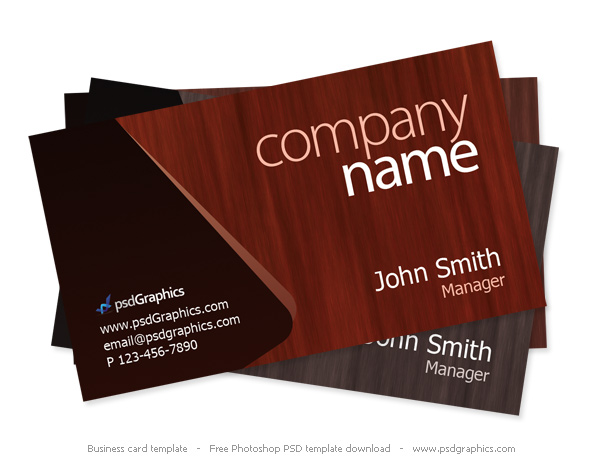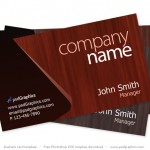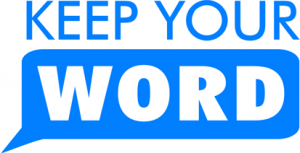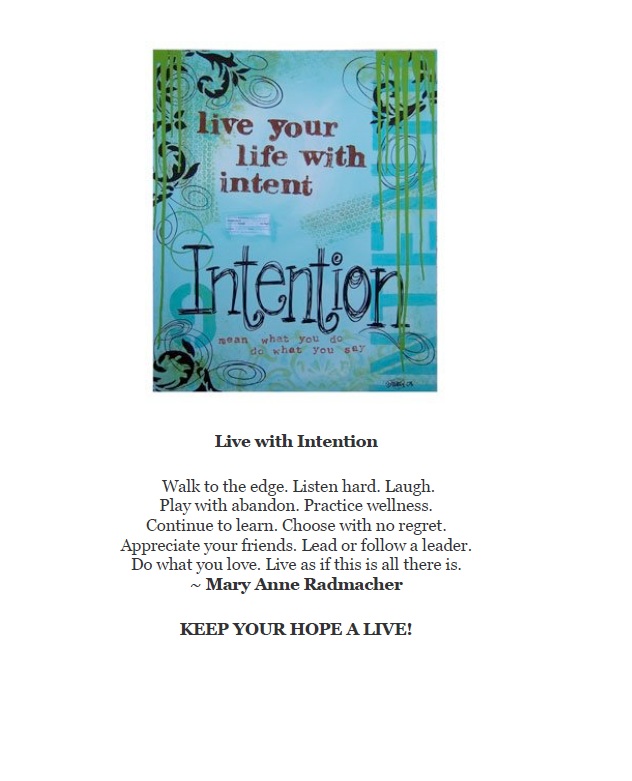
by cjxpadmin | Feb 27, 2013 | Job Readiness, This Issue's FEATURE
Excerpt from Life Transitions, Managing Change
Creating Your Future
It has been said the path to your greatest personal growth is through your problems. You are invited to embrace your problems for  unless you have them, they will have you. There’s a huge difference between the two. You will always have problems. Life is a puzzle. The difference between someone who suffers from their problems and someone who learns and grows from them is in how you take them on. Your future will depend entirely on how you deal with your problems.
unless you have them, they will have you. There’s a huge difference between the two. You will always have problems. Life is a puzzle. The difference between someone who suffers from their problems and someone who learns and grows from them is in how you take them on. Your future will depend entirely on how you deal with your problems.
Taking a New Approach — From Reaction to Creation
 It is normal, understandable, and human to react negatively to the difficult times you might face. However, you want to be very clear that the stress and suffering you have is a result of how you choose to react. It is also possible to take on your problems with a minimum stress. If you choose to create rather than react, perhaps, there will be no suffering at all. It will be helpful if you can envision the whole chain of reactions, which shape your usual reaction to things. The goal is to turn reaction into creation. But first, look at the flow as it usually occurs.
It is normal, understandable, and human to react negatively to the difficult times you might face. However, you want to be very clear that the stress and suffering you have is a result of how you choose to react. It is also possible to take on your problems with a minimum stress. If you choose to create rather than react, perhaps, there will be no suffering at all. It will be helpful if you can envision the whole chain of reactions, which shape your usual reaction to things. The goal is to turn reaction into creation. But first, look at the flow as it usually occurs.
Circumstances
For most people, circumstances determine how they feel and operate in life. If things are pretty good, they feel good. If something  breaks down, they get upset. If you live this way, your experience of life must be like a roller coaster because things go from good to bad and bad to good on a regular basis. For most people, there are always enough circumstances to make life tough, if not downright stressful. You have taken the first step in shaping how you react to circumstances by choosing how you view your own circumstances. This is the first step in shifting out of reaction. Let’s look at a flow chart and see how important this step really can be.
breaks down, they get upset. If you live this way, your experience of life must be like a roller coaster because things go from good to bad and bad to good on a regular basis. For most people, there are always enough circumstances to make life tough, if not downright stressful. You have taken the first step in shaping how you react to circumstances by choosing how you view your own circumstances. This is the first step in shifting out of reaction. Let’s look at a flow chart and see how important this step really can be.
The Flow Chart – Reaction
(Start from the bottom to see the reaction sequence.)
Outcomes and Results
(Eventually our future will come from the actions we take or don’t take regarding the circumstances we are dealing with.)
Behaviors
(Actions we undertake, things we do or don’t do about circumstances, all stem from what we feel. Our emotions are our motivators. Being angry, sad, or depressed are not always great motivators.)
Emotions
(Attitude and thoughts bring up feelings. Emotions hold the energy for what we feel and what we will do. If we react negatively to our circumstances, then, stress eats at us. Every time we run the upsetting thoughts through our head, we feel those same upsetting emotions.)
Attitude
(Attitude is a gathering of thoughts, conversations, and agreements. What I think is right and true becomes the way I think about the situation. If my reaction is negative, then, my initial attitude will be negative also.)
Interpretation
(We have an immediate reaction: Is this going to be good or bad for me? The interpretation that circumstances are bad causes a negative reaction.)
Circumstances
(Things that matter enough to cause us to react such as no job, financial problems, kid(s) in trouble, or transportation issues.)
Learning A Better Way
You can see from the flow chart that our response to stressful circumstances is usually determined by the reactions we have to them. This begins with our basic interpretation of events, whether we like them or not, and it goes from there. What if, instead of reacting to circumstances, we create our response from a different place?
Let’s use the future we would like for ourselves as a place to come from in determining how we take on tough parts of our lives. This is a much wiser option. We all want a future that works for us where we are successful and happy. The question is what does it take to make that happen?
Drawn Forward By the Future
While your future is unknown and uncertain, you have the power to steer your life into a future worth having. Everyone wants a future  where you can love your life. The most important question for you to ask is, “Who do I have to be to make the future I want?” To have a successful future, you will have to act in ways that can make it happen. This is the principal behind shifting reaction to creation.
where you can love your life. The most important question for you to ask is, “Who do I have to be to make the future I want?” To have a successful future, you will have to act in ways that can make it happen. This is the principal behind shifting reaction to creation.
Let’s take another look at the flow chart and see how the future you want can determine the ways you respond to difficulties you face. This time, instead of starting at the bottom, start at the top with the outcomes you want and observe how that determines how you will act, feel, and the attitude necessary to put your mind to work for you.
The Flow Chart
(Start at the top with the outcomes you want.)
Outcomes and Results
(Create an idea or a vision for the future you want. From your vision, create goals that will help you understand what you must do to make a better future.)
Behaviors
(The actions you now take are aimed at making your desired goals happen. Behaviors and actions consistent with your goals is the surest way to have positive movement in your life.
Emotions
(Next, you must create emotions and feelings that naturally motivate you toward reaching your goals.)
Attitude
(The way to create a good attitude is by encouraging yourself to feel positive, confident, and determined. These new thoughts will keep you striving toward the life you want.)
Interpretation
(Armed with a new attitude, you are free to re-interpret your circumstances. Instead of seeing the circumstances as either good or bad, you may see the problems you face as perfect.)
Circumstances
(Things that matter enough to cause us to react, such as no job, financial problems, kid(s) in trouble, or transportation issues. Now you can have an effective and powerful response to these situations instead of just suffering. Putting your personal power to work for you is the most useful response to stress.)
While you have many choices to the path to your future, the path you select is YOURS. You choose if you want to be happy; happiness is a choice you make. Your career and friends are other choices you must make. So, as you decide what you want out of your future, you must take responsibility for that future. Attitude, interpretation, behavior and emotions all will determine the outcome of your future. A smile can affect your attitude, which controls your emotion, which then, drives your outcome. So, if nothing else start with a smile and a positive attitude, it may do wonders for you. △


by cjxpadmin | Feb 26, 2013 | This Issue's FEATURE
February 9, 2012
By Natalia
Hundreds of resumes are flooding into many hiring and HR managers. So how do you get someone’s attention? Does your cover letter “kill” or get thrown in the “b” pile? Many of your comments indicate that some of you think that using a cover letter is a relic of the past, while others have discovered that a well crafted cover letter actually differentiated them from the herd of followers. To the non-believers, you can just keep filing out those online applications and HOPE for a response. But for those who are proactive and innovative, a cover letter can lead to new opportunities. If you already found the perfect job, you probably would not be reading this. So maybe it’s time to take a leap of faith “back to the future” with a well-crafted cover letter.
 Your cover letter is the first impression that you give employers. Sometimes without a GOOD cover letter, your resume does not get the attention it deserves. Let’s face it; resumes get skipped over all the time. That’s why you have to come up with a strategy on how to sell yourself to this potential employer. Set yourself apart by telling the employer how you will help them achieve their goals and what they reap if they hire you. If a cover letter does not attract the reader’s attention in the first paragraph, then, your chances of being called for an interview are drastically reduced. An employer may have a hundred or more resumes to look through and he or she is probably limited in time to make their selection. Here are a few tips that can help you toward a high quality cover letter.
Your cover letter is the first impression that you give employers. Sometimes without a GOOD cover letter, your resume does not get the attention it deserves. Let’s face it; resumes get skipped over all the time. That’s why you have to come up with a strategy on how to sell yourself to this potential employer. Set yourself apart by telling the employer how you will help them achieve their goals and what they reap if they hire you. If a cover letter does not attract the reader’s attention in the first paragraph, then, your chances of being called for an interview are drastically reduced. An employer may have a hundred or more resumes to look through and he or she is probably limited in time to make their selection. Here are a few tips that can help you toward a high quality cover letter.
Tip #1:
If you are going to mail your cover letter, then, use high-quality white paper; it’s thicker than typewriter or printer paper. Avoid elaborate or colored stationery. Print a clean final copy to send, not a photocopy. Make sure there are no smudges or grease marks on the paper. Keep your extra copies in a large envelope or manila folder.
(Reader Comments:)
“FYI to those who think mailing isn’t worth it: I just mailed 217 covers/resumes to recruiting offices in the Midwest. I’ve received more calls, e-mails and one-on-one service in the last 10 days than I did in the whole first 5 months of my search. Think about it…you don’t just drop into the electronic void, they have to contact you and request the electronic copy. Have to say mailing worked great for me.”)
Tip #2:
Keep your cover letter brief and to the point. Your letter should not go over one page. Use short paragraphs and bullet points whenever possible. Avoid excessive words when fewer words will get your point across equally. Construct your cover letter to have the same format style as your resume.
Tip #3:
Highlight a most recent accomplishment or credential that you are proud of. This gives employers a hint of what you are capable of doing. Impress the employer with your skills and qualifications.
Tip# 4:
If you’re e-mailing your letter, make sure your document will open properly as an attachment and that your computer system is virus-free.
Tip #5:
Your return address should appear in the top right hand corner, without your name. As a general rule, you should avoid abbreviations in the addresses of your cover letters, although abbreviating the state is common in all business correspondence. The date should appear two lines beneath your return address on the right hand side of the page. Write out the date; do not use the abbreviated format. Example: February 11, 2012.
Tip #6:
Always try to find the name and proper title of the addressee before you send out a cover letter. Two lines beneath the date on the left margin of the letter, list the full name of the addressee preceded by Mr. or Ms. (Do not use Miss or Mrs., even if you happen to know the marital status of the addressee). On the next line, list the individual’s formal title; on the subsequent line, list the name of the company. This is followed by the company’s address, which generally takes two lines. The salutation should be typed two lines beneath the company’s address. It should begin with “Dear Mr.” or “Dear Ms.” You should never use “To Whom It May Concern.”
Tip #7:
Request an interview or follow-up call in your closing paragraph. This gives the impression that you are eager and ready. Truth be told, sometimes you have to follow up yourself and call the employer to check the status. However, be patient. Give them at least a week to follow-up.
Tip #8
Use a professional ending such as “Respectfully yours,” or “Sincerely”. Don’t forget to sign your name; preferably, black ink. Nothing looks worse than a letter with a big white space where the signature is supposed to be. E-mailed cover letters are exempt to this.
Tip #9:
Do not use the same cover letter for every job that you are applying for. Tailor your cover letter to that particular company.
Tip #10:
Most important: PROOFREAD! PROOFREAD! PROOFREAD! Use spell check and if available, have someone else look over it. Nothing is better than two pairs of eyes. Misspelled words will definitely send your resume to the bottom of the pile and possibly overlooked!
Written by Tressa Manns. I am a freelance writer and working the 9-5 as a Human Resources Supervisor. My goal is to utilize all my skills in acting, writing, promoting and marketing. △
Reprinted From:

by cjxpadmin | Feb 26, 2013 | Job Search, This Issue's FEATURE
By Sheena Williams
When most people think of customer service they think of sweating away in a fast food restaurant or maybe sitting on the phone in a cubicle eating Cheetos. That could not be further from the truth!
Customer service is exactly what it sounds like, providing service for customers. When you walk into a business of any type, you expect at the very least to be greeted  and treated with respect, and rightly so! When you leave said business, you expect to have all of your needs taken care of within reason, and as a customer, you should. Not only should you expect this, you should also be giving this. As a Customer Service Rep, you were hired to make money or solve a problem, not lose money and cause problems. So, we here at CampusJobXpress have a customer service cheat sheet to help you on your way.
and treated with respect, and rightly so! When you leave said business, you expect to have all of your needs taken care of within reason, and as a customer, you should. Not only should you expect this, you should also be giving this. As a Customer Service Rep, you were hired to make money or solve a problem, not lose money and cause problems. So, we here at CampusJobXpress have a customer service cheat sheet to help you on your way.
- Use Common Sense. You should strive to treat people as you would want to be treated. If you expect someone to do anything they can to make your visit worthwhile, then, you should be willing to do the same. Granted, there are people who are naturally rude, but as an employee, you should do your best not to sink to that level. Continue to smile. It is not worth it losing your job due to a rude or disrespectful
 individual. Just take a deep breath and continue to use the Golden Rule where applicable.
individual. Just take a deep breath and continue to use the Golden Rule where applicable.
- Be Responsive. If someone asks you a question, sends an e-mail or makes a phone call, do your best to answer it or find someone who can give them an answer. You are providing a service that someone wants, and you run the risk of losing business by not providing it. Even if you don’t provide that particular service, you can help them find another department or politely let them know you don’t provide that service at this time.

- Make It Easy To Contact You. It is never remiss for you to make business cards. Maybe you have a specialized service, or maybe you can answer questions or resolve issues with ease. By making yourself easy to contact, you make it easier for people to see you as an expert when something is going wrong. This means more customers and more contacts. It’s a win/win for everyone involved!
- Listen. I cannot stress enough how often I have asked a customer service person, a lawyer, a CEO, or a fast food worker a simple question and an attitude suddenly appears out of nowhere. Keep in mind that not everyone knows the answer to even the most basic things. If they knew these things, they wouldn’t need to come to you. It shouldn’t be a bother to do your job as well as to listen for a few minutes. You may not have the answer, however, you can direct them to where the answer can be found. Listen to the complete problem, repeat it for understanding, and ask questions for clarity, then find a way to solve it. It’s that simple!

- Adapt. As stated above, customers have all sorts of questions. So when they come into your place of business, you need to be open to helping them, however you can. Let them lead and see where they need to go with each interaction you have with them. They may only need a small part to a piece of the puzzle. Don’t try to sell them the whole puzzle. This may be hard if you work on a sales job, so it’s recommended to do as your guidelines dictate, but do them within reason. You will get more repeat business by doing what the customer wants and needs rather than by giving them things they neither need or want.
- Embrace Social Media. LinkedIn, Facebook, and Twitter. All of these things are tools that you need to get get familiar with and
 use. If you don’t know how, find a class, a student, a second cousin, maybe even a daughter or grandson (if you’re lucky enough to be a grandparent) to help you navigate your way through the electronic jungle. You can notify people of sales, maybe suggest upcoming events, or just keep them abreast of what’s going on. It’s just another way of making yourself accessible to customers.
use. If you don’t know how, find a class, a student, a second cousin, maybe even a daughter or grandson (if you’re lucky enough to be a grandparent) to help you navigate your way through the electronic jungle. You can notify people of sales, maybe suggest upcoming events, or just keep them abreast of what’s going on. It’s just another way of making yourself accessible to customers.
- Honor Your Word. Your word should always be your bond. If you tell someone that you are going to do something, then, by all means and by all cost, you should do it. Things do happen, and if you can’t honor your word, then you need to apologize profusely and find a way to rectify the situation as soon as possible. This builds trust with your clientele and it keeps them coming back to conduct more business.

Remember. You are the representative of your company. What you do during your on-the-clock hours directly affects what people think of your company when they are away. Provide customer service, and being polite can go a long way to make everyone feel at ease. It doesn’t matter where you work, customer service is always acceptable and very much needed and appreciated! △

by cjxpadmin | Feb 4, 2013 | This Issue's FEATURE
by robert@mypastdoesnotequalmyfuture.org
“Nothing creates more unhappiness than failed expectations…Expectations are an attempt to control the future. ~Deepak Chopra
I knew this person who would condition positive statements of his future with the phrase, “When my ship comes in.” It would not  matter what the experience was, a new job, new car or a new house. All good things were contingent on when his proverbial ship came in.
matter what the experience was, a new job, new car or a new house. All good things were contingent on when his proverbial ship came in.
Over the years that I knew him, I observed him slowly change into an unhappy, frustrated person. His plans did not work out. He was stuck in the same job ( that he hated), the same house (that was too small for his very large family), and a series of cars, that were never what he really wanted. He eventually became a cynical person, filled with failed expectations and regrets. His “ship” never arrived!
As I think about this man, I become aware of how similar we are. Over the years, I, too, have had my own episodes of day dreaming. In fact, all of us, from the day we are born, are conditioned to seek happiness outside of ourselves.
 This expectation/disappointment cycle starts affecting our lives very early. We all either know someone like this or we are similar in our thought process. We use such terms as: (1) Someday my ship will come in. (2) Someday I will win the Lotto. (3) When [fill in the blank] happens, I will be happy. (4) I will do that after I lose this weight. (5) Everything would be fine if she/he would only [fill in the blank]. (6) I cannot do that; I do not know how to start. You get the picture. When we use these statements, our happiness in life becomes dependent on external people and circumstances or some magical coincidence. The result is that our lives become ripe for disappointment.
This expectation/disappointment cycle starts affecting our lives very early. We all either know someone like this or we are similar in our thought process. We use such terms as: (1) Someday my ship will come in. (2) Someday I will win the Lotto. (3) When [fill in the blank] happens, I will be happy. (4) I will do that after I lose this weight. (5) Everything would be fine if she/he would only [fill in the blank]. (6) I cannot do that; I do not know how to start. You get the picture. When we use these statements, our happiness in life becomes dependent on external people and circumstances or some magical coincidence. The result is that our lives become ripe for disappointment.
The key to breaking this cycle is to first realize that our lives are what we have created - no one else! Neither God, parents, lover, employer or siblings are responsible for the life that we have. We have created this life through our beliefs, thoughts, and choices  that we have made on a daily basis. Unfortunately, we often have not given full attention and focus to how we truly want our lives to look. We have not consciously decided who we want to be. At the end of this life on earth, what do you want to be known for?
that we have made on a daily basis. Unfortunately, we often have not given full attention and focus to how we truly want our lives to look. We have not consciously decided who we want to be. At the end of this life on earth, what do you want to be known for?
Start at the end of your life as you want it to be and work backward to where you are now. The story of ”you” is your choice. You can determine that story right now. It is not too late to develop that personal vision of who you want to be. Starting now, take daily action on the things that will result in the “you” you choose to be. Ask yourself this question: “What am I willing to do right now?” This keeps you focused and in the present and it supports your well-being. It brings focus into the present, where we can do something constructive, rather than focusing on the future, where action is not possible.
 Keep in mind that from birth, Spirit has provided and continues to provide everything you need to have the life you desire. Spirit wants you to be happy and is waiting on you to make a move. He will continue to move with you.
Keep in mind that from birth, Spirit has provided and continues to provide everything you need to have the life you desire. Spirit wants you to be happy and is waiting on you to make a move. He will continue to move with you.
Believe In You!
KEEP YOUR HOPE ALIVE! Δ

by cjxpadmin | Jan 28, 2013 | February 2013 Magazine, This Issue's FEATURE


by cjxpadmin | Jan 28, 2013 | February 2013 Magazine, This Issue's FEATURE
STEPS TO LANDING A JOB THAT MAKES YOU HAPPY
Article provided by JobSearchInfo.com
When you’re embarking on a new job search, it is very helpful to first think about the types of jobs you could be happy with. You should think about the type of company, the type of co-workers you’d like to have and what
 kind of responsibilities you would like to have so that you’re on a path to continual growth and progress in your career. The more well thought-out your vision is for your career, the easier the entire process will be.
kind of responsibilities you would like to have so that you’re on a path to continual growth and progress in your career. The more well thought-out your vision is for your career, the easier the entire process will be.
Why is that? I would suggest that when employers hire candidates, they’re not just hiring you for what you can do today. They’re also hiring you for your potential and for how you could fit into the organization a year from now, two years from now, and longer. Hiring employees is always expensive, even in times of high unemployment. Therefore, employers have a strong incentive to hire candidates who they believe will stay a while. If an employer uses a headhunter to hire you, they will pay 10-20% or more of your first year’s salary. Even if they hire without the use of a recruiter, turnover (employees leaving and coming into an organization) is a significant cost. When a job function isn’t filled, it often means the employer can’t produce as much or run their operations as efficiently, which is a greater cost than the cost of paying an employee’s salary. With for-profit organizations, workers are, by definition, worth more than what they’re paid because the company has to earn more than its costs to stay in business. I point this out because many job seekers underestimate their worth and buy into the notion that a company is doing them a favor by hiring them. In reality, when there is a match between employer and employee, it should be a two-way street and a win-win situation: the company benefits just as much as you do. Over time, good employees become more and more valuable to an organization as they learn more about how it works and gain knowledge outsiders wouldn’t have. This brings me back to my original point, which is that employers are looking for someone who they can see fitting into their organization long-term. This is why they often will ask “Where do you see yourself three years from now?” in an interview. It’s also why many career books suggest you learn about a company before interviewing with them. Thinking about where you want to be in the future and what kind of job you’d like to have will go a long way toward helping you create your vision.
The other part of your vision should include ways you can benefit the company you end up working for. If you want to become a top-producing salesperson, the benefit for the company would be increased sales. If you’re an entry-level computer programmer now and you want to become a senior-level programmer in two years, the benefit for the company is gaining an employee who will become increasingly valuable the longer you stay with them. It will help make your vision more concrete to employers and recruiters if you can tie it in with previous achievements. For example, if you want to be on the path to becoming a customer service manager and you’ve already had customers compliment you on your expertise or supervisors write good reviews of you, that is evidence that you have a commitment to your vision. 
Once you have a resume that communicates what experiences you’ve had and how you’re prepared to fit into the vision you’ve created for your future, the next step is to generate leads. You should use as many methods as you can think of to generate leads because the more options you have, the better your chances of landing a job that truly fits in with your goals. Here are some specific steps you can take to generate leads:
* Post your resume on job board websites. Getting your resume on job boards is sort of like a business having a listing in the phone book. It enables recruiters who are looking for someone like you to find you easily. The most popular job board is Monster.com. However, Monster is not necessarily the best site for every profession and every industry. Getting your resume on other job boards like CareerBuilder, Job.com.com, and any niche sites that may exist for your specialty (such as Techies.com for IT professionals or TopSalesPositions.com for sales professionals) is a good idea. If you want to save time and get your resume over 90 job boards at once, we recommend using the fee-based service ResumeDirector.com. A word of advice about posting your resume: most recruiters will locate your resume with keywords. Keywords are words or phrases that would be associated with the function you can perform. For example, an employer looking for a corporate lawyer might search on the terms “in-house lawyer,” “corporate attorney,” or “corporate lawyer.” So you should make sure any terms you can think of that an employer would search to find you are included in your resume somewhere.
One way to do this is to vary the terminology you use in your resume. In describing your duties for a previous employer, you could refer to yourself as a “corporate lawyer” in one sentence and as an “in-house lawyer” in the next.
- Network With Other People. Networking is a powerful way to land a new job. It has been estimated that 85% of jobs are filled by word of mouth. In addition to the fact that many positions are not widely advertised, finding a job through networking often means there’s less competition. So you could have a greater chance of getting the job than if the employer is considering you among 5-10 other people they
 found through a job site. A good place to start networking is the local chapter of the professional association for your field. Often called the “association of associations,” the American Society of Association Executives’ web site provides a search screen to find associations in specific industries and professions. You can check it out at www.asaenet.org/find/ Also, local business magazines (such as Crain’s local business publications) often include information on networking events. Want to learn more about networking? Harvey Mackay is one of the leading experts on building personal relationships through networking and has written a great book on the subject called “Dig your well before you’re thirsty: the only networking book you’ll ever need.”
found through a job site. A good place to start networking is the local chapter of the professional association for your field. Often called the “association of associations,” the American Society of Association Executives’ web site provides a search screen to find associations in specific industries and professions. You can check it out at www.asaenet.org/find/ Also, local business magazines (such as Crain’s local business publications) often include information on networking events. Want to learn more about networking? Harvey Mackay is one of the leading experts on building personal relationships through networking and has written a great book on the subject called “Dig your well before you’re thirsty: the only networking book you’ll ever need.”
* Contact Local Recruiters. Recruiters, also known as Headhunters, are people whose business is based on “selling” candidates to employers. Recruiters are a good channel to use because they already have relationships with employers, and they have a financial incentive to help you land a job if they could see you fitting in with one of their clients. For a recruiter to get you placed with a company, they will often need to “pitch” you to their client. You can help make their job easier by coming up with some of the key elements they could use in that pitch. This goes back to the concept discussed earlier of developing a vision for your career. If you have an interesting story to tell about where you’re going and how your past experiences tie in, that is something that can get both recruiters and the direct employers excited. Recruiters want to hear about the interesting things that make you unique because that helps them pitch you to their clients. If you’re just starting out on a job search, contacting recruiters who specialize in your field and meeting with them is a great way to get a feel for your marketability. Recruiting is a people business so I’d suggest meeting with recruiters in person, if possible. If a recruiter has met you in person, they’ll be more likely to think of you if a client has a position you could be good for. If you contact a recruiter over the phone or by e-mail and they say they don’t have any positions for you right now, ask if they might have some in the future. If they think they would, you might suggest meeting in person now so that they’ll have already interviewed you if a position opens up. That makes them better prepared for possible client needs and gives you an edge over potential competition. A good place to go to find local recruiters is Recruiters Online at www.RecruitersOnline.com. This site provides a search feature where you can find recruiters in your area and in your field.
- Contact Employers Directly. Are there certain companies you know where you’d like to work? If so, it wouldn’t hurt to contact them to find out if they have any positions open that might interest you. Also, many employers list jobs on their website that they don’t post on job boards. Monster.com is a good
 place to go to respond with your resume to specific job opportunities. However, keep in mind that there is often stiff competition with other job seekers on Monster because it’s the most popular job board. Another good site is Flipdog.com, which often lists positions not shown on other job boards. DirectEmployers.com is a site that is actually a consortium of several large companies. With DirectEmployers, the companies pay a flat rate to list as many jobs as they want, which often means they list more positions than they would with a regular job board. A good source for government jobs is AmericasJobBank.com. America’s Job Bank also lists private sector jobs and it is run by the U.S. Department of Labor in conjunction with the Departments of Labor in the individual U.S. states.Once you have identified good job leads that seem to fit in with a job you could be happy with in the long-term, some of those leads will progress into interviews. Successful interviewing is about showing the employer how you can fit in with their needs and also making sure they would be a good fit for you. I commented earlier that if your vision for your career fits in with the employer’s vision, they will benefit from having you as an employee just as much or more than you benefit from working there. So the frame through which you view the job opportunity makes a big difference in how successful the interview will be. If you see it as a potential win-win opportunity, it becomes about you and the employer helping each other achieve goals. That will translate into increased confidence for you in the interview. Here are some specific interviewing tips:
place to go to respond with your resume to specific job opportunities. However, keep in mind that there is often stiff competition with other job seekers on Monster because it’s the most popular job board. Another good site is Flipdog.com, which often lists positions not shown on other job boards. DirectEmployers.com is a site that is actually a consortium of several large companies. With DirectEmployers, the companies pay a flat rate to list as many jobs as they want, which often means they list more positions than they would with a regular job board. A good source for government jobs is AmericasJobBank.com. America’s Job Bank also lists private sector jobs and it is run by the U.S. Department of Labor in conjunction with the Departments of Labor in the individual U.S. states.Once you have identified good job leads that seem to fit in with a job you could be happy with in the long-term, some of those leads will progress into interviews. Successful interviewing is about showing the employer how you can fit in with their needs and also making sure they would be a good fit for you. I commented earlier that if your vision for your career fits in with the employer’s vision, they will benefit from having you as an employee just as much or more than you benefit from working there. So the frame through which you view the job opportunity makes a big difference in how successful the interview will be. If you see it as a potential win-win opportunity, it becomes about you and the employer helping each other achieve goals. That will translate into increased confidence for you in the interview. Here are some specific interviewing tips:
* Research the Company Beforehand. If you come in to the interview knowing about the company through research on their website, perhaps through talking to people who’ve worked there, etc., you will come across like a professional who is serious about finding a good match with an employer.
* You should do as much listening as possible in the interview to find out what the employer is seeking. The more you know about what the employer wants, the better you can tailor your responses so that they fit in with the employer’s vision for the position. This doesn’t mean you should lie or exaggerate. However, knowing more about what qualities are important to the employer will help you determine which aspects of your experience, personality, vision for your career and vision for how you can help them to emphasize. For example, if an employer is most concerned about finding someone with good people skills, you’d be better off talking about how well you work with people and how you like working with others than you’d be talking about your great computer skills (although it would be important to talk about computer skills too if the employer is interested in that). How can you find out what things the employer values? If you’re asked an open-ended question like “Tell me about your experience with this kind of work,” you could respond with a question like “I have a wide range of experience. If you could tell me what qualities are important to you when considering someone for this position, I can better address specific ways that I’m qualified.”
* Most interviewers will give you an opportunity to ask questions about the position or the company. Depending on how much structure there is to the interview, you could bring up the topic yourself or the interviewer may ask if you have any questions at the end. This would be a good opportunity for you to ask questions to determine if you think the position would be a good long-term fit for you. Questions could include asking the interviewer what they think of the company. Or asking what the co-workers are like. In addition to these questions providing you with information, they illustrate to the interviewer that you are serious about finding a good match and they will be more likely to see you as an honest, straightforward person they can feel comfortable hiring.
All in all, job searching is about deciding what you want out of your career and matching yourself up with an employer who can help you get there. When you look at job searching from this kind of carefully considered perspective, you’ll come across to employers as professional and serious about finding a position that makes sense for both you and for the employer. Δ

 unless you have them, they will have you. There’s a huge difference between the two. You will always have problems. Life is a puzzle. The difference between someone who suffers from their problems and someone who learns and grows from them is in how you take them on. Your future will depend entirely on how you deal with your problems.
unless you have them, they will have you. There’s a huge difference between the two. You will always have problems. Life is a puzzle. The difference between someone who suffers from their problems and someone who learns and grows from them is in how you take them on. Your future will depend entirely on how you deal with your problems. It is normal, understandable, and human to react negatively to the difficult times you might face. However, you want to be very clear that the stress and suffering you have is a result of how you choose to react. It is also possible to take on your problems with a minimum stress. If you choose to create rather than react, perhaps, there will be no suffering at all. It will be helpful if you can envision the whole chain of reactions, which shape your usual reaction to things. The goal is to turn reaction into creation. But first, look at the flow as it usually occurs.
It is normal, understandable, and human to react negatively to the difficult times you might face. However, you want to be very clear that the stress and suffering you have is a result of how you choose to react. It is also possible to take on your problems with a minimum stress. If you choose to create rather than react, perhaps, there will be no suffering at all. It will be helpful if you can envision the whole chain of reactions, which shape your usual reaction to things. The goal is to turn reaction into creation. But first, look at the flow as it usually occurs. breaks down, they get upset. If you live this way, your experience of life must be like a roller coaster because things go from good to bad and bad to good on a regular basis. For most people, there are always enough circumstances to make life tough, if not downright stressful. You have taken the first step in shaping how you react to circumstances by choosing how you view your own circumstances. This is the first step in shifting out of reaction. Let’s look at a flow chart and see how important this step really can be.
breaks down, they get upset. If you live this way, your experience of life must be like a roller coaster because things go from good to bad and bad to good on a regular basis. For most people, there are always enough circumstances to make life tough, if not downright stressful. You have taken the first step in shaping how you react to circumstances by choosing how you view your own circumstances. This is the first step in shifting out of reaction. Let’s look at a flow chart and see how important this step really can be. where you can love your life. The most important question for you to ask is, “Who do I have to be to make the future I want?” To have a successful future, you will have to act in ways that can make it happen. This is the principal behind shifting reaction to creation.
where you can love your life. The most important question for you to ask is, “Who do I have to be to make the future I want?” To have a successful future, you will have to act in ways that can make it happen. This is the principal behind shifting reaction to creation.



















